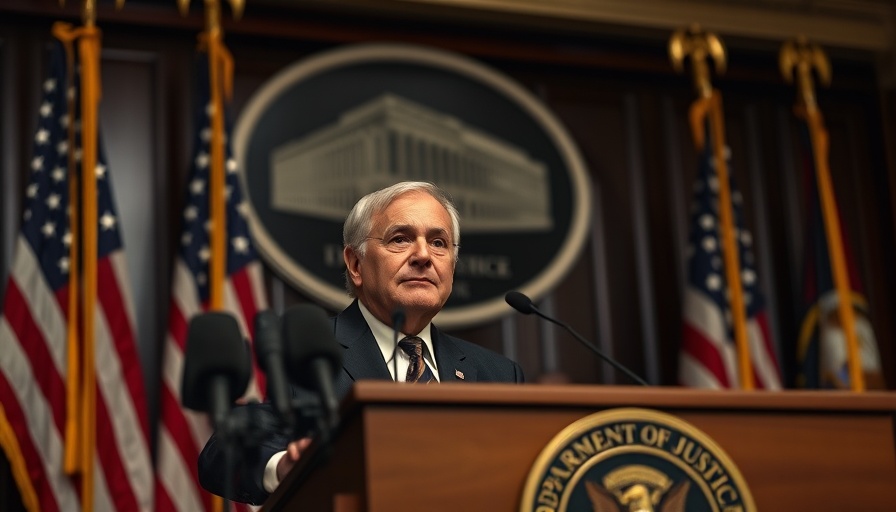
Trump's Bold Return: Shaping Justice and Law Enforcement
On March 14, 2025, President Donald Trump made a significant visit to the Department of Justice (DOJ), where he delivered a fervent speech embracing a stringent "tough on crime" agenda. The former president, who has found himself at the intersection of legal challenges and political fervor, used this platform to criticize the Biden administration's Justice Department while promoting his vision for future law enforcement policies.
Articulating a Law-and-Order Approach
During his address, Trump asserted that the DOJ had been transformed into a political tool during the Biden era, coining the term "Department of Injustice." He made it clear that such practices would not continue under his leadership. With his characteristic bravado, Trump pledged to "expose his enemies" and restore integrity and trust within the department.
In his hour-long speech, he discussed issues from the fentanyl crisis to immigration, and asserted his commitment to making communities safer. He proclaimed, "We don't want to have crime in the streets… We want justice and safety in our cities and communities." This broad framing of his agenda reflects both an appeal to his base and a navigation of complex socio-political issues that resonate nationally.
The Politics of Law Enforcement
Trump's DOJ visit was not merely a policy speech; it was also a strategic move to garner support for his administration amid ongoing investigations against him. Critics of his approach argue that his rhetoric threatens to politicize the Justice Department further. In a time when public trust in federal institutions is wavering, Trump’s narrative positions him as a protector of "law and order," a sentiment deeply rooted in the American psyche. However, it also raises questions about the implications for the impartial administration of justice.
Reactions to Trump's Address
The reaction to Trump’s comments has spurred mixed responses. Supporters view his remarks as a necessary pushback against a perceived weaponization of the DOJ for political ends, while detractors worry about the implications of such rhetoric for demagoguing justice. Figures who see themselves as non-partisan observers are left pondering whether the language used will lead to a more divided understanding of law enforcement's role within the American political landscape.
The Broader Context of Crime Policy
As Trump pushes for an aggressive law-and-order agenda, it's crucial to examine the broader context. Crime rates have varied significantly across the United States, and cities are grappling with how to balance safety and civil liberties. This landscape invites a deeper conversation about policing strategies, community support models, and the need for comprehensive crime prevention efforts that go beyond mere enforcement.
Moreover, the critiques surrounding the Justice Department's actions during the previous administration reveal a tension between political accountability and the pursuit of justice. Whether Trump's latest announcement will result in the intended policy changes or merely stoke further political division remains to be seen.
Looking Ahead: The Future of American Justice
As Trump navigates his second term, the potential to reshape the DOJ will have lasting impacts not only on law enforcement but on societal perceptions of justice. Future policies will need to address systemic issues that have long plagued American justice—from racial disparities to questions of accountability for law enforcement officers.
As citizens and observers, it is our responsibility to engage with and scrutinize the developments in national and local news that revolve around these themes of crime and justice. Holding our leaders accountable and advocating for fair practices will be critical in ensuring that justice reflects the values of equity and community safety.
Call to Action: Engage with Your Community
As the conversation around crime and justice continues to unfold, it is vital to remain informed and engaged. Understanding the implications of these changes—both locally and nationally—enables us to act meaningfully within our communities. Consider attending town halls, reaching out to local representatives, or participating in dialogues focused on public safety and reform. The future of our communities depends on informed engagement from all citizens.
 Add Element
Add Element  Add Row
Add Row 



 Add Row
Add Row  Add
Add 


Write A Comment